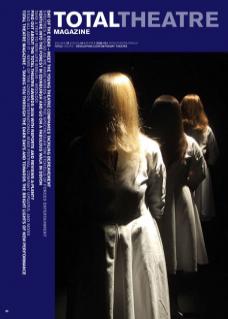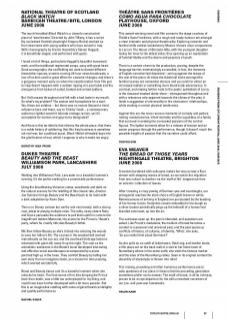This award-winning novel and film comes to the stage courtesy of Théâtre Sans Frontières, with a rough and ready humour set amongst a clear dramatic and physical theatricality. Exploring romantic and familial strife amidst revolutionary Mexico it bears clear comparisons to Lorca’s The House of Bernada Alba, with the youngest daughter losing her lover to the eldest sister, thus opening up an exploration of familial fidelity and the desire and passions of youth.
There is a certain charm to the production, proving, despite the language barrier, entertainingly accessible; in fact, the moments of English narrative feel disjointed – jarring against the tempo of the rest of the piece. At times the theatrical tricks amongst the familial scenes are somewhat obvious and you wish for either an increased realism or something more theatrically adventurous. In contrast, and making further nods to the poetic symbolism of Lorca, is the classical masked dumb-show – interspersed throughout and with a relevance only apparent towards the climax of the play, it lends a suggestion of universality to the characters’ relationships, while evoking a certain physical tenderness.
Against this are the more raucous moments of comedy and pathos: raiding revolutionaries, infant mortality and the squabbles of a family that succeed in evoking the concealed passions of the central figures. The lighter moments allow for a release of tension and an easier progress through the performance, though it doesn’t reach the possible heights of passion that the narrative could afford.

